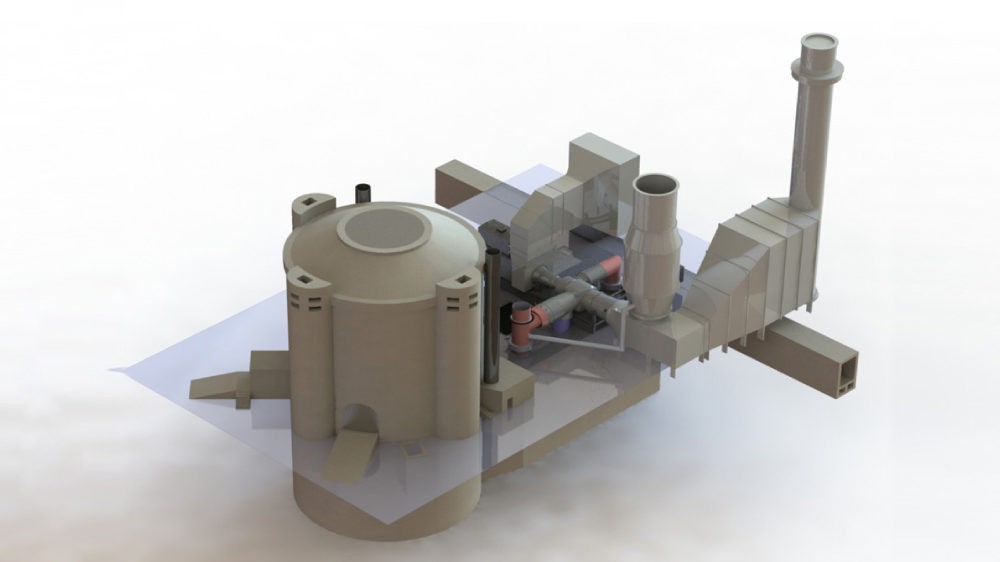Firebricks offer low-cost storage for carbon-free energy
By EPR Magazine Editorial October 5, 2017 4:47 pm IST
By EPR Magazine Editorial October 5, 2017 4:47 pm IST

Ancient technology could be used to level electricity prices for renewable: MIT researchers
Firebricks, designed to withstand high heat, have been part of our technological arsenal for at least three millennia. Now, a proposal from MIT researchers shows this ancient invention could play a key role in enabling the world to switch away from fossil fuels and rely instead on carbon-free energy sources.
The researchers’ idea is to make use of excess electricity produced when demand is low — for example, from wind farms when strong winds are blowing at night — by using electric resistance heaters, which convert electricity into heat. These devices would use the excess electricity to heat up a large mass of firebricks, which can retain the heat for long periods if they are enclosed in an insulated casing. At a later time, the heat could be used directly for industrial processes, or it could feed generators that convert it back to electricity when the power is needed.
The technology itself is old, but its potential usefulness is a new phenomenon, brought about by the rapid rise of intermittent renewable energy sources, and the peculiarities of the way electricity prices are set. Technologically, the system “could have been developed in the 1920s, but there was no market for it then,” says Charles Forsberg, a research scientist in MIT’s Department of Nuclear Science and Engineering.
Forsberg points out that the demand for industrial heat in the U.S. and most industrialised regions is actually larger than the total demand for electricity. And unlike the demand for electricity, which varies greatly and often unpredictably, the demand for industrial heat is constant and can make use of an extra heat source whenever it’s available, providing an almost limitless market for the heat provided by this firebrick-based system.
The system, which Forsberg calls FIRES (for FIrebrick Resistance-heated Energy Storage), would in effect raise the minimum price of electricity on the utilities market, which currently can plunge to almost zero at times of high production, such as the middle of a sunny day when solar plant outputs are at their peak.
Electricity prices are determined a day in advance, with a separate price for each one-hour segment of the day. This is done through an auction system between the producers and the distributors of power. Distributors determine how much power they expect to need during each hour, and suppliers bid based on their expected costs for producing that power. Depending on the needs at a given time, these prices can be low, if only baseload natural gas plants are needed, for example, or they can be much higher if the demand requires use of much more expensive “peaking” power plants. At the end of each auction, the distributors figure out how many of the bids will be needed to meet the projected demand, and the price to be paid to all of the suppliers is then determined by the highest-priced bid of all those accepted for that hour.
But that system can lead to odd outcomes when power that is very cheap to produce — solar, wind and nuclear power, whose actual operating costs are vanishingly small — can supply enough to meet the demand. Then, the price the suppliers get for the power can be close to zero, rendering the plants uneconomical.
But by diverting much of that excess output into thermal storage by heating a large mass of firebrick, then selling that heat directly or using it to drive turbines and produce power later when it’s needed, FIRES could essentially set a lower limit on the market price for electricity, which would likely be about the price of natural gas. That, in turn, could help to make more carbon-free power sources, such as solar, wind, and nuclear, more profitable and thus encourage their expansion.
CaptionImage courtesy: Researchers (MIT)
We use cookies to personalize your experience. By continuing to visit this website you agree to our Terms & Conditions, Privacy Policy and Cookie Policy.